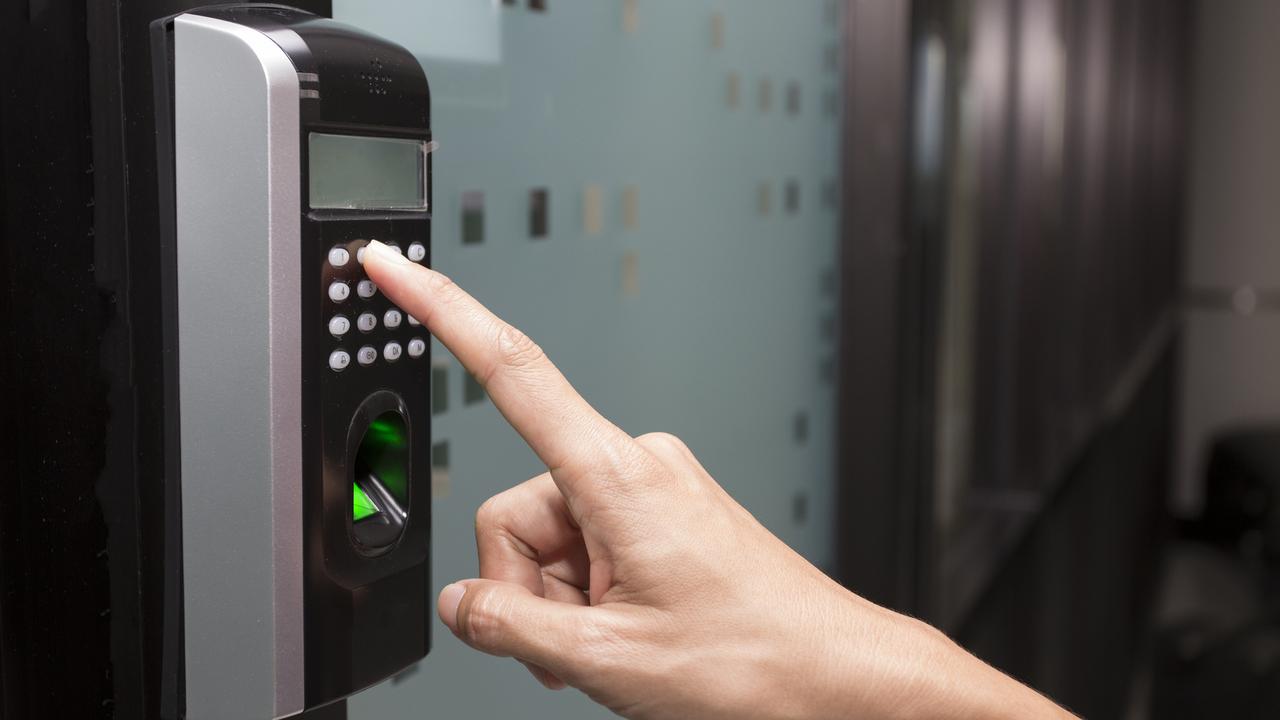Worker wins unfair dismissal case after refusing to hand over biometric data
Aussie worker Jeremy Lee was fired after refusing to hand over his fingerprints at work. After a 15-month legal fight, he finally won.
Most of us don’t think twice about using our fingerprints — but Jeremy Lee isn’t most people.
The Queensland sawmill worker was so passionate about protecting his biometric data he refused to accept a new security process which used employee’s fingerprints to sign on and off at his company, Superior Wood.
He was sacked for his stance last February, after being given a series of verbal and written warnings.
Mr Lee suggested a compromise which would allow him to keep his job, but also hold onto the ownership of his biometric data, which was refused.
The Queensland man ended up losing an unfair dismissal case when it was first heard by the Fair Work Commission last year, with a commissioner at the time ruling Superior Wood’s policy was “not unjust or unreasonable” because it improved workplace safety, the efficiency of the payroll system and that the company “had the right to manage its affairs”.
But during the entire battle, Mr Lee argued the policy was a breach of the Privacy Act, claiming he owned his own biometric data, which he considered to be “sensitive personal information”.
He said his workplace was not entitled to that personal information, and that refusing to follow the policy was not a valid reason for his dismissal.
Mr Lee decided to appeal the decision — and represent himself.
And on May 1, the commission eventually ruled in his favour, finding he had been unfairly dismissed.

In documents seen by news.com.au, the commission ruled Superior Wood “did not have a valid reason for the dismissal which related to Mr Lee’s capacity or conduct”.
“ … on balance we find that Mr Lee’s dismissal was unjust. It was unjust because Mr Lee was not guilty of the conduct alleged,” the documents state.
“As the direction was unlawful he was entitled to refuse to follow it. Mr Lee was unfairly dismissed.”
As for what happens next, the case is being referred to Commissioner Simpson to decide “what remedy, if any, should be ordered”.
But Mr Lee told RN’s The Law Report he was already happy with the win, after claiming his company had “tried to coerce” him into something he wasn’t comfortable with.
He said he did not have a police record or any other reason to fear using his fingerprint, but that he was simply concerned about the misuse of his personal data.
“If someone else has control of my biometric data they can use it for their own purposes — purposes that benefit them, not me. That is a misuse,” he told the ABC.
“My objection was that I own it. You cannot take it. If someone wants to get it or take it they have to get my consent.”
The case is the first unfair dismissal decision of its kind in this country, and one that’s likely to pop up again in future.
“It shows that employment law is at a crossroads with technology, and these kinds of issues are going to continue to come up as technology rapidly advances,” Shine Lawyers’ employment law expert Will Barsby told news.com.au.
“We are in an era where we are paying for a coffee with a mobile phone and we open our phone using our fingerprint, so it stands to reason we will see the same kind of tech advances in workplaces soon.
“Mr Lee’s concerns are genuine as we have seen so many hacks where personal data was misused.”
But Mr Barsby said the case did not actually set a legal precedent, as it was based around whether it was unreasonable to dismiss the worker for not complying with the request for his fingerprint.
“The case doesn’t change the general rule that an employer can dismiss an employee for not complying with a reasonable and lawful direction,” he said.
“Dismissal cases generally fall on their own facts, in this case the employer was not able to demonstrate compliance with the Australian Privacy Principles. There had been no process under the requirements to obtain an employee’s consent.”
Continue the conversation @carey_alexis | alexis.carey@news.com.au




